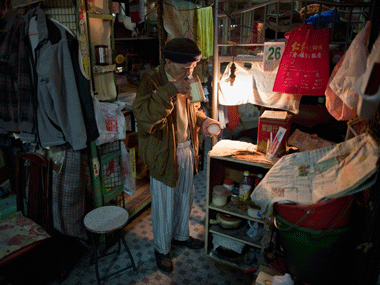[caption id=“attachment_2949” align=“alignleft” width=“380” caption=“Daniel Berehulak/Getty Images”]  [/caption] After three decades of focused family planning dictates, China has a new situation on hand – more old people and fewer young to pay for their pensions. This has lead many policy experts to suggest a relaxation of the strict family-size policies. The latest census report that was released on Thursday, comes after a decade of rapid economic growth that has pulled many from farms into the cities and led to significant social change. The annual population growth stands at below one percent, which is projected to turn negative in coming decades. However, the BBC reports that President Hu Jintao told top party lawmakers on Tuesday that the government wiill maintain status quo on the family planning policy, in the interest of controlling the rate of population growth. The census records 2010 NUMBERS: • Those over 60 number 1.34 billion. This group accounts for over 13.3 percent of the population. • Nearly half of all Chinese (49.7 percent) now live in cities, up by 16 percentage points from 2000. • The proportion of mainland Chinese people aged 14 or younger was 16.6 percent, down by 6.29 percentage points from the last census in 2000. • The average household now numbers 3.1 people, down from 3.44 a decade ago. • The number of people who had been to the university for every 100,000 more than doubled from 3,611 in 2000 to 8,930 in 2010. While there are a range of conclusions that can be drawn from these numbers, in the given context the most worrying thing is that an ageing society means more pensioners, and that burden will be borne by fewer workers, thanks to the one-child policy for urban areas. According to demographers, China’s family planning policy is sure to threaten China’s economic future, with fewer people working in the factories that made China World number 2. Voices: “The data from this census show that our country faces some tensions and challenges regarding population, the economy and social development,” said Ma Jiantang, head of the National Bureau of Statistics. And that China would have to “actively respond to the new challenges in demographic development”. “This is only the beginning of an accelerating process, given that fertility is so low right now, population aging will only get more serious.” – Wang Feng, a population expert and director of the Brookings-Tsinghua Center for Public Policy in Beijing. “The restrictions need to be relaxed in some places but not across the country, because the total population is still growing.” – Peng Xizhe, dean of Fudan University’s School of Social Development and Public policy in Shanghai.
Slow population growth and a rising number of aged could stall China’s high-speed chase to the World No 1 spot
Advertisement
End of Article


)

)
)
)
)
)
)
)
)



